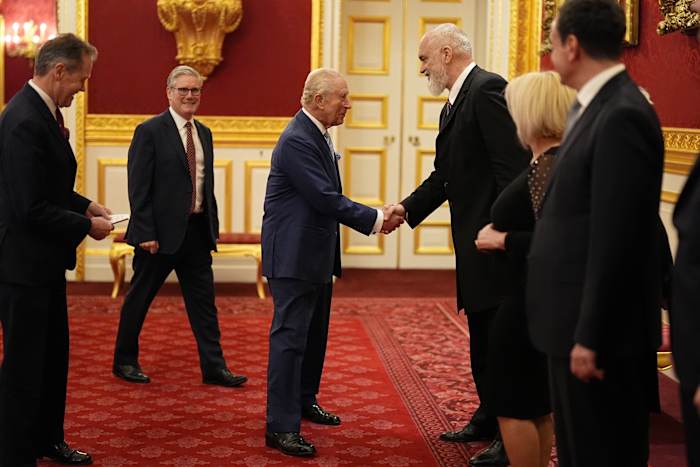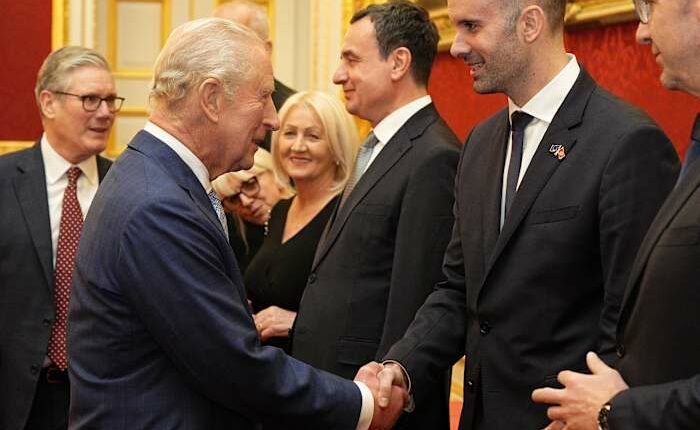Share this @internewscast.com

LONDON – This week, London becomes the focal point for crucial discussions as leaders of six Western Balkan countries gather for talks with British and European officials. The agenda is packed with pressing issues such as migration, security, and economic growth, all within a region where Russian influence remains a significant concern.
Delegates from Albania, Bosnia, Kosovo, Montenegro, North Macedonia, and Serbia will participate in this summit, which is part of the Berlin Process. Established in 2014, the initiative aims to guide these southeastern European nations toward European Union membership.
To date, Croatia stands as the sole Western Balkan country to have joined the EU, achieving membership in 2013. For the rest, the path has been fraught with delays and challenges. Tensions remain particularly high between Serbia and Kosovo, the latter of which declared independence from Serbia, a move that Belgrade has yet to recognize.
The EU, however, has shown increased openness to accepting new members, especially following Russia’s full-scale invasion of Ukraine in 2022. The ongoing conflict and the intensified standoff between Russia and the West raise fears of potential instability spilling into a region still healing from past conflicts.
Despite its departure from the EU in 2020, the United Kingdom plays host to this significant annual summit. Attendance includes representatives from various European countries and EU officials, emphasizing the importance of continued collaboration.
Under the leadership of Prime Minister Keir Starmer, the UK government is eager to advance several initiatives. These include combating the drug trade, enhancing the defense capabilities of Western Balkan nations against Russian interference, and tackling unauthorized migration — a priority for Britain.
Gangs have smuggled hundreds of thousands of people to the EU via the Western Balkans in recent years, and Britain says a quarter of migrants reaching the U.K. in small boats across the English Channel have traveled through the region.
Britain is hoping to build on a joint task force with Albania that has helped — through a returns agreement and local projects in areas the migrants come from — reduce the number of Albanian migrants trying to reach the U.K., from 12,000 in 2022 to some 600 in 2024.
Britain also has sent law enforcement officers to the region to work with the EU border agency, Frontex, and it is seeking countries willing to host “return hubs” where rejected asylum-seekers could be held until they can be deported.
The leaders of Albania and Montenegro both expressed reluctance to have return hubs on their soil.
“When it comes to the hubs, or whatever they are called, I’ve said it, and I repeat — never in Albania,” Albanian Prime Minister Edi Rama said Tuesday at the Chatham House think tank.
Montenegro’s Prime Minister Milojko Spajic said his country is “not part of the migrant routes through the Balkans” because its railway infrastructure isn’t developed enough.
He said might be willing to accept a migrant returns hub if Britain agreed to “invest 10 billion euros into building railways.”
Copyright 2025 The Associated Press. All rights reserved. This material may not be published, broadcast, rewritten or redistributed without permission.











